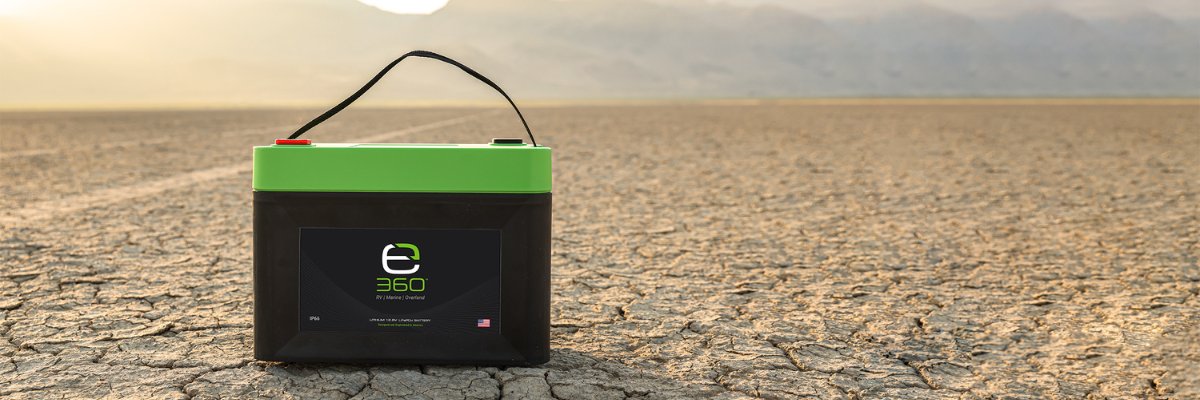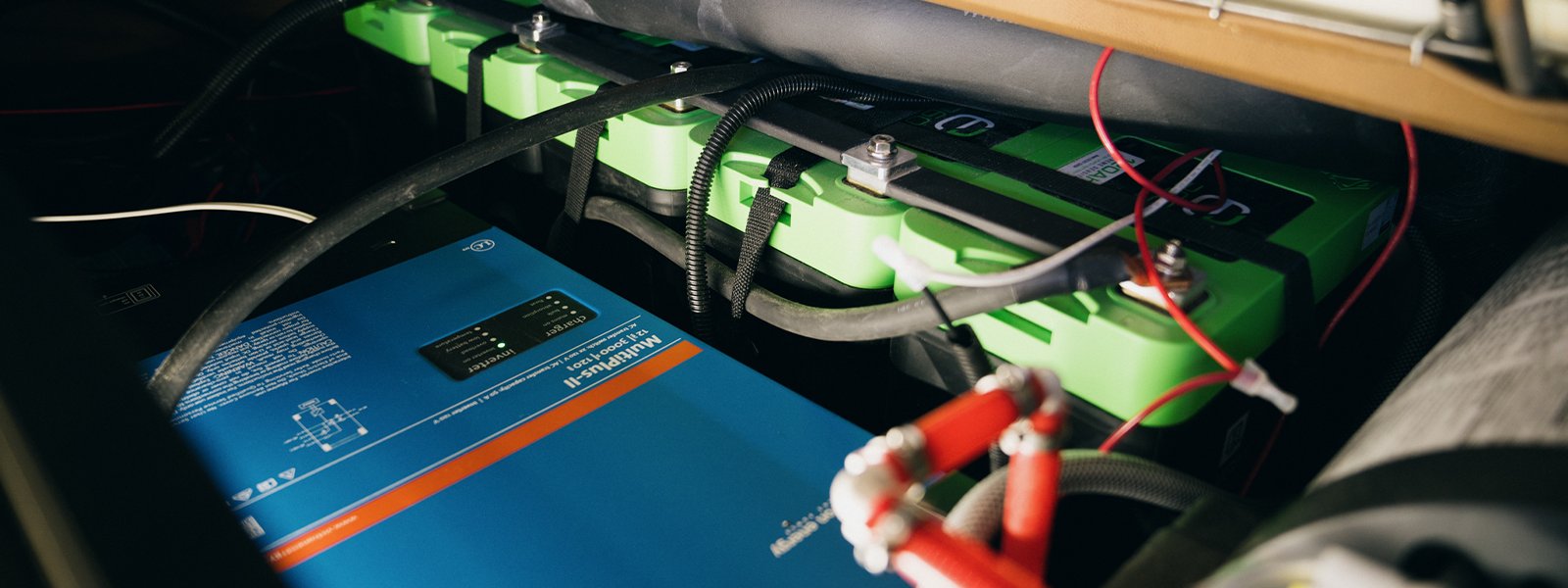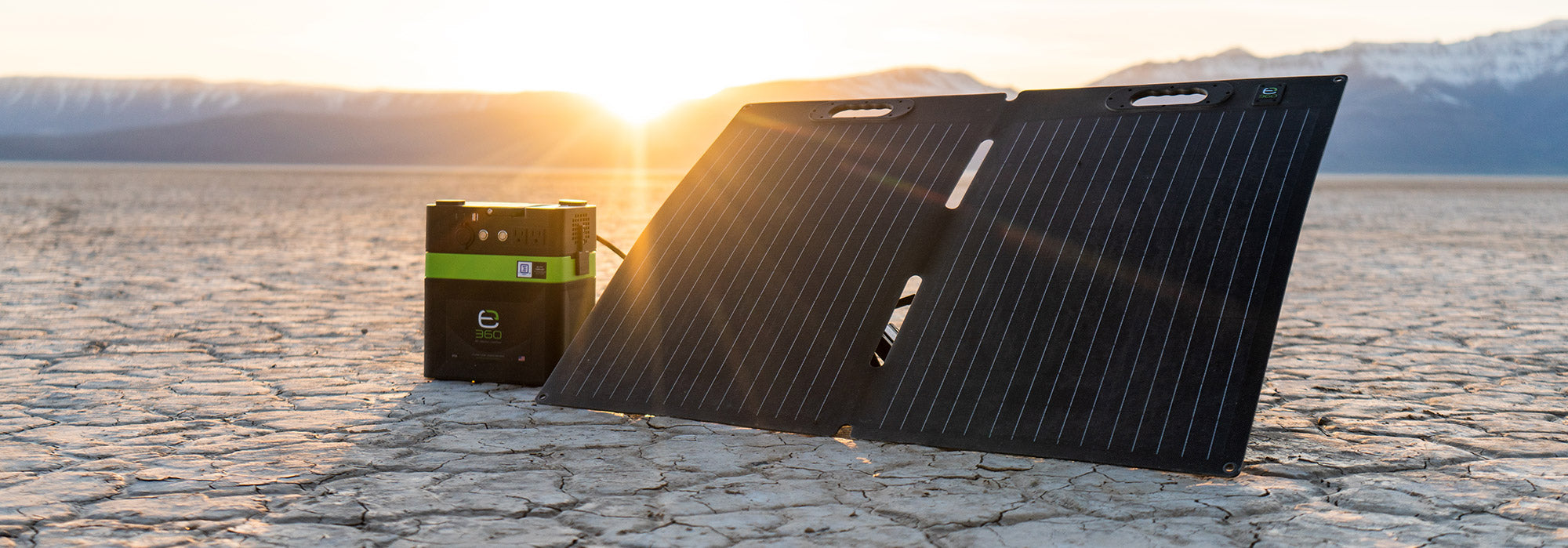Lithium-ion Battery Supplier Expion360 Pursuing Both OEM and RV Aftermarket By Jeff Kurowski
By Jeff Kurowski | RV Executive Today
Unless you are an experienced RVer, you may not realize the lights, home appliances and entertainment systems inside an RV draw electric power from factory-installed lead-acid batteries, along with power from a generator or "shore power" at a campground. But since December 2020, lithium-ion battery supplier Expion360 Inc. has been working hard to get RV manufacturers and consumers owning RVs to switch from lead-acid to high energy lithium-ion batteries.
Expion360's CEO Brian Schaffner and OEM sales manager, Tim Daiker, met via Zoom in June with RVDA Director of Industry Relations Jeff Kurowski to discuss the Redmond, OR-based company's future in the RV sector. Below is the key portion of their conversation edited for length and clarity. RVDA: Several major automobile manufacturers are moving away from building cars and trucks powered by internal combustion engines and towards battery powered all-electric vehicles (EVs). RV builders Thor and Winnebago have also built EV "concept" motorhomes and travel trailers. Is Expion360 looking to compete against the Fords, General Motors, Thors and Winnebagos of the world?
SCHAFFNER: No, we're looking strictly at powering the on-board systems of an RV. We are distinct and separate from the EV market. It's a slightly different chemistry (lithium iron phosphate). It's a chemistry Tesla is moving towards because it's less prone to thermal runaway, which means there's less risk of fire. RVDA: Expion360 recently announced a partnership to supply lithium-ion batteries with two OEMs: motorhome builder Chinook RV and Xtreme Outdoors, builder of Little-Guy brand teardrop trailers. Do you also see opportunities in the aftermarket - dealers installing your batteries in RVs they've already sold to retail buyers?
SCHAFFNER: Yes. First, we see someone coming into a dealership wanting to upgrade (from lead-acid to lithium-ion batteries) on a unit they already own. The other is retail buyers deciding they want lithium but the trailer or motorhome they are purchasing doesn't have it.
That's called a front-side sale. They (front-side sales) sometimes are a little easier to close because they can be worked into an RV loan that's longer versus the RV owner having to pay for it upfront. There will be lot of opportunities for people to upgrade from lead-acid.
RVDA: Why upgrade to lithium from lead-acid batteries?
DAIKER: There's at least five reasons:
- A longer lifespan, definitely, which is why we have a 12-year warranty on our batteries. One of the main reasons for investing in lithium is you should get at least a decade of life out of it. I've been around the lead-acid business for a while, and I've seen customers come in every year because they didn't maintain their lead-acid batteries, so they're replacing them yearly if not every other year.
- You don't have to worry about liquid electrolyte spilling out. You've got more options where you can store them - inside under a bed or in a cabinet, things like that. You don't have to worry about that liquid spilling out if you pull it out for storage.
- Less weight, you're half the weight of an average comparable lead-acid battery.
- Lithium-ion batteries produce three times the power of the typical lead-acid battery.
- They charge faster.
- More environmentally friendly.
SCHAFFNER: The fact lithium charges faster and has a quicker recovery means it meets today's customers' expectations. Now, you have customers who want to go off grid for longer and longer periods, and they want to run increasingly sophisticated systems in their RV.
They want to run their air conditioner off their batteries, they want to run their microwave off their batteries. That was never asked for before. Despite being half the weight, lithium-ion batteries provide three times the power and 10 times the number of charging cycles compared to standard lead-acid batteries, allowing RVers to enjoy beautiful and remote places even longer and in greater comfort. Some of the systems we're testing can keep someone using just the batteries off-grid - not hooked-up to solar or shore power - for up to three or four days. If they add solar, that adds more time. And if they drive, they can get power for the batteries off the alternator, or shore power (at a campground).
RVDA: So, which has more potential, the OEM market or the aftermarket?
DAIKER: I think the potential on the aftermarket side is greater because 11 million households own an RV versus 400,000 units coming out of Elkhart each year. There's more units we can get our hands on in the aftermarket. SCHAFFNER: The typical lifecycle of lead acid is somewhere between two to four years, if you're lucky. So, you look at that and 11 million RV owners, so there's a big volume there (in the aftermarket). But we do like specializing in the OEM market too because OEMs like the new technology and they are utilizing smaller footprints (floorplans). One of the things battery manufacturers are going to be asked to do is come up with batteries having different shapes to free up more floor space. OEMs don't want a block of batteries taking up a three foot-by-three floor space where someone will walk. Some of our batteries that can be installed upside-down in a cabinet so you can still put things in the bottom part of the cabinet. So, we're working with OEMs to learn what type of shapes they need. We may not have those shapes now, but we're paying close attention to their needs because OEMs are putting more and more things in smaller spaces. RVDA: Now lithium battery systems cost more than the lead-acid systems they replace. In this time of tight budgets and high inflation, how do you get consumers to decide if now is the time to switch to lithium-ion systems?
SCHAFFNER: We understand money is tight, but for less than twice the cost (of replacing a lead-acid battery system which typically needs to be replaced every year or two) you get a (lithium-ion battery) system with eight-year free replacement and a 12-year warranty. You're getting six to seven times the useful years, at least, for less than twice the cost depending on the type of system you want to put in. That's why we say invest in lithium. It makes a lot of sense.






